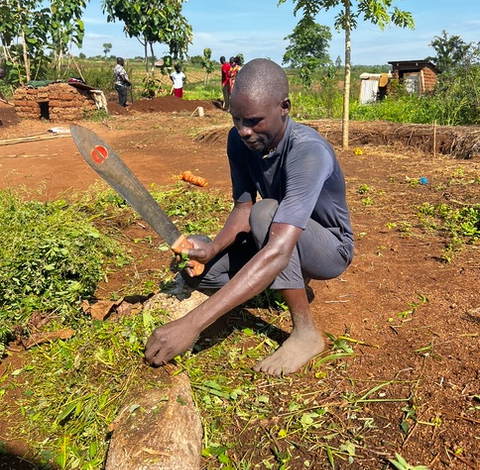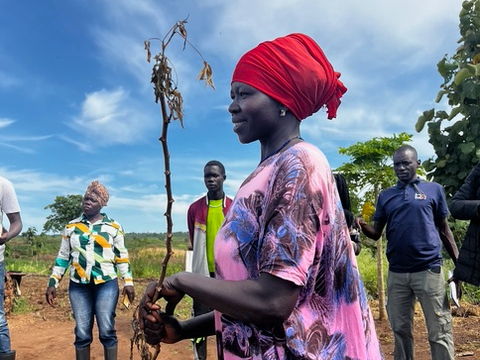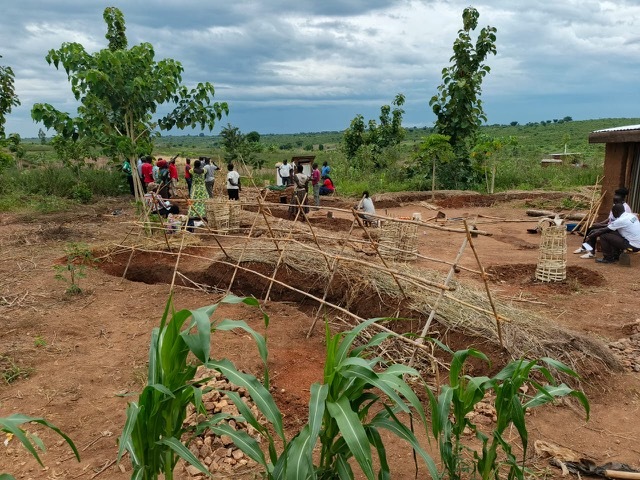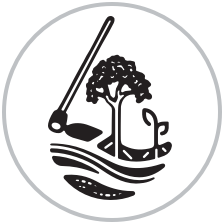
In Uganda’s refugee-hosting districts, the convergence of climate stress, displacement, and environmental degradation presents a complex resilience challenge:
- Topsoil is rapidly eroding, driven by deforestation, unsustainable land clearing, and over-cultivation.
- Climate extremes—including flash floods, intra-seasonal droughts, and erratic rainfall—are increasing in frequency and intensity.
- Demographic pressure, including from refugee inflows, is straining land, water, and forest resources in already fragile ecosystems.
In many areas, especially in the north, traditional agricultural knowledge has been disrupted by decades of conflict. In others, first-time farmers—including refugees formerly engaged in pastoralism—are navigating unfamiliar terrain with little support.
Conventional agronomic models alone can’t address this scale of degradation.

That’s why Uganda Refugee Resilience Initiative (URRI) is advancing regenerative Resilience Design (RD)—a participatory, site-specific design methodology that integrates water harvesting, soil regeneration, and biodiversity restoration into practical, scalable interventions.
Originally field-tested under the Northern Uganda Resilience Initiative (NURI), the RD approach is now being adapted under URRI to meet the combined environmental and social dynamics of refugee-hosting districts.
Key principles include:
-
Water harvesting – Digging earthen structures that slow, spread, sink, and bank rainwater, mitigating both floods and droughts
-
Soil health – Building the soil food web to increase fertility, carbon capture, and crop productivity
-
Biodiversity – Designing agroecosystems that support nutrition, income, and ecosystem function across seasons
-
Social empowerment – Especially of women, who are central to household food security and environmental management
RD is not a technology package—it is a shift in how we work with land and water systems to foster ecological restoration of degraded catchments; enhanced climate absorptive and adaptive capacity; diversified, year-round production; and community ownership and environmental stewardship.

Follow URRI on LinkedIn to get the latest updates on their RD journey!
About URRI: The Uganda Refugee Resilience Initiative (URRI) is a flagship Danish-funded development programme (2024–2028) supporting durable solutions for refugees and host communities in Uganda. With a DKK 280 million (UGX 142 billion) investment, URRI reaffirms Denmark’s long-standing commitment to inclusive development and Uganda’s progressive refugee model. As refugee numbers rise and funding declines, URRI tackles the triple challenge of climate change, displacement, and gender inequality. It promotes climate-smart agriculture, community-led natural resource management, and gender-responsive approaches—strengthening resilience for both refugees and hosts, with a special focus on women and youth. URRI is implemented by two consortia led by Save the Children Denmark and Danish Refugee Council, with 12 total implementing partners.
